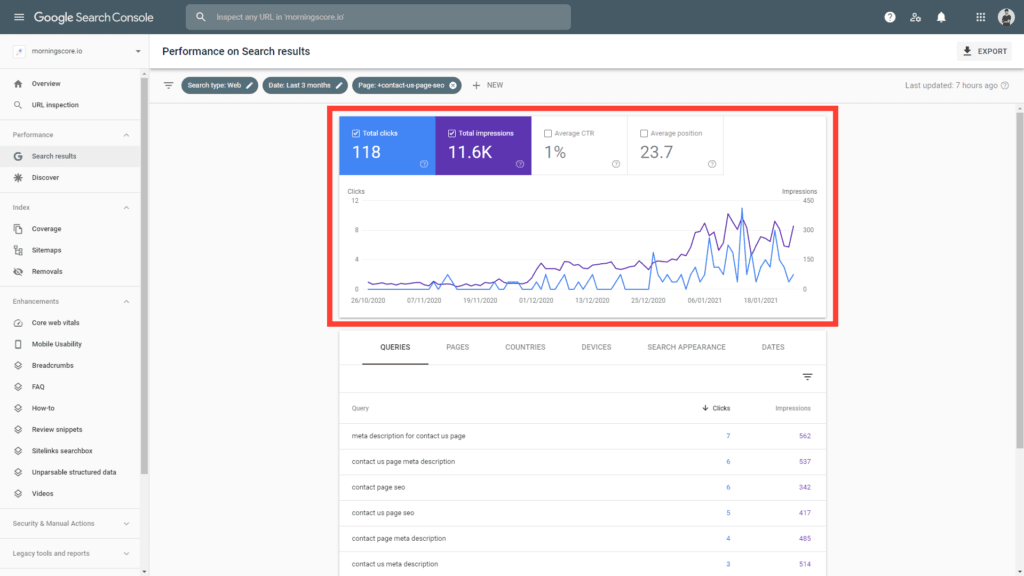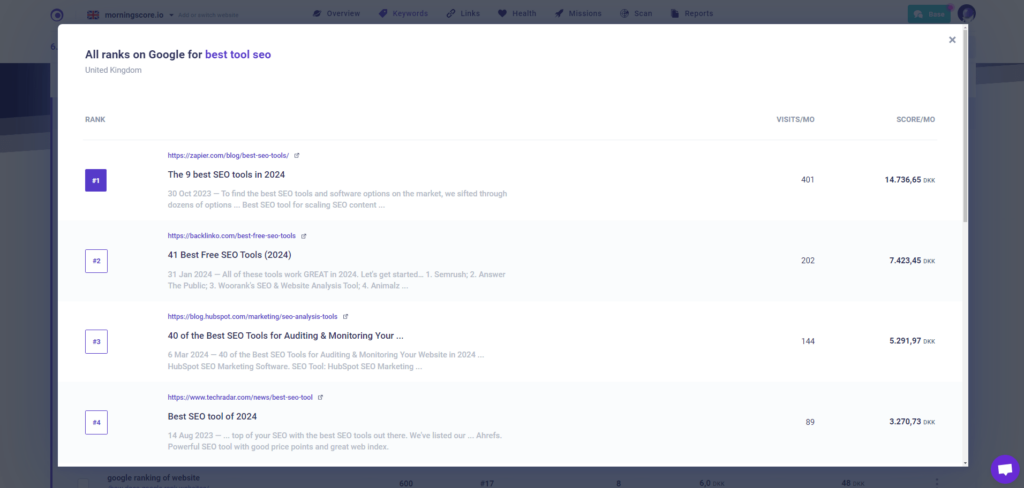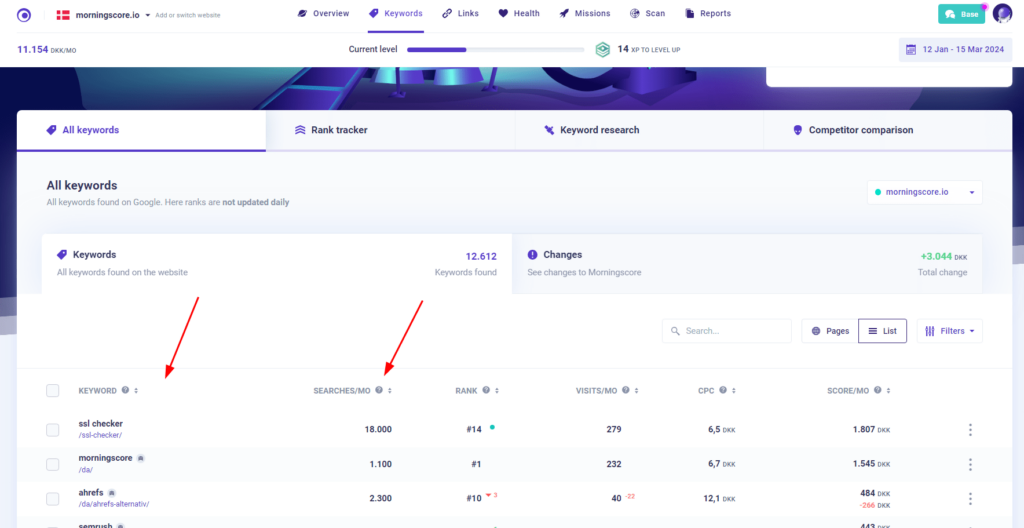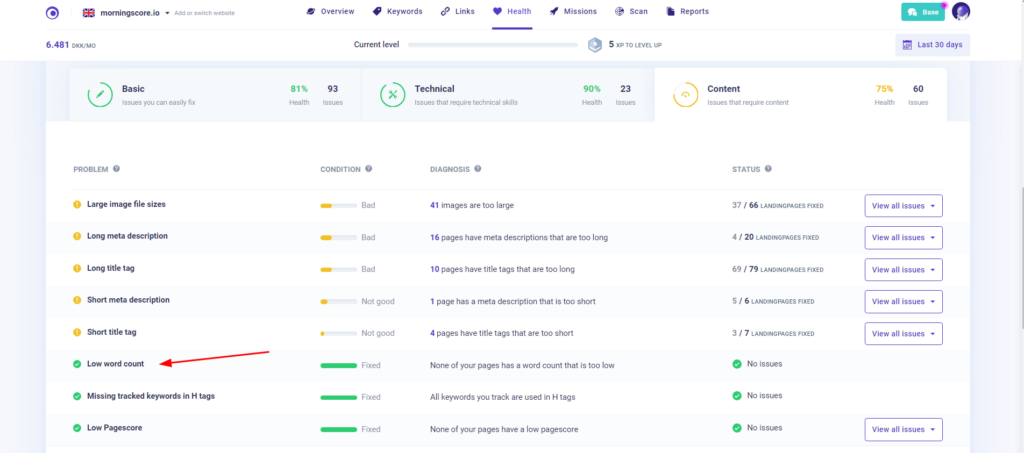We all know that keywords are the bread and butter of SEO. While we humans think in more implicit and abstract concepts, machines and algorithms still need many explicit signals to understand the context of a given page and derive meaning from it. But since that’s the case, what are the implications of changing your target keyword, and will you lose everything?
Let’s answer whether changing your target keyword affects your SEO positively or negatively.
Google uses keywords to determine your page’s context. When changing your target keyword, you inform Google that the page’s context has changed. Thus, changing your target keyword will negatively affect your SEO for the original keyword you targeted while improving your SEO for the new keyword.
Switching target keywords (and thus the purpose of your page) is not something intrinsically bad. Sometimes, we write articles that feature keywords people don’t search for and end up not ranking optimally – or not at all.
Because of that, changing your target keyword can be a very strategic move if your pages are underperforming. Let’s look at when you should change your target keyword and not worry about the negative SEO effects of doing so.
Changing target keywords no one searches for
One of the best instances where changing your target keyword will benefit your SEO is when you’ve simply targeted the wrong keyword. Sometimes in our interactions with customers and potential leads, we end up on a subject we think we should write about. However, as it turns out later, no one is searching for that keyword – at least not in the way we’ve “framed it.”
Even though we rank at the top when we search for that exact phrase, nothing comes out of that page. Google Analytics doesn’t show an increase in traffic, and our CRM has no trace of leads coming through that page.
Because of that, and because you’ve already invested time and money to create the article, simply throwing away that content is a bad use of resources. In such cases, an effective strategy is to do better keyword research and thus change only the target keyword for that page to something people search for.
Changing target keywords when facing competitors
On the other hand, changing your target keyword is also a good strategy when facing tough SEO competition. Suppose you’ve created a landing page or written an article around a broader term. Later on, you notice that this page is not likely to succeed, because the SEO competition on that keyword, is way too fierce.
In this case, changing your target keyword to something less competitive is a very good strategy to get some rankings and traffic out of the page.
As we established, changing your keyword will result in you losing rankings for the keyword you targeted initially. But if that keyword wasn’t ranking well in the first place, and isn’t likely to rank in the future, switching to a less competitive keyword, would be a net positive.
Targeting a more niche longtail keyword, might mean fewer people search for your keyword, but the people searching for that specific thing are often more likely to click on your result and engage with your page if it’s hyper-targeted, making this a quality vs quantity decision.

I’ll give you a personal example where I targeted a keyword with strong competition. You might have heard of the element called “Alternative Text” – essentially, it is a short string of text that you add to images, which tells Google what that image is about. While researching my competitive space for the keyword “image alt text,” I saw that this topic is very crowded, and many large websites with strong authority own the top results. In other words, we didn’t stand a chance of ranking for it. However, I figured that writing the same post but framing my target keyword as “wordpress alternative text” is actually viable.
Now, alternative texts work exactly the same way everywhere on the web, regardless of what Content Management System you’re using. Essentially, there’s no difference between the alternative text in Shopify and WordPress. But simply writing that as my target keyword allowed me to actually show up in Google’s results for a more specific, and thus less competitive keyword.
Changing target keyword to improve lead quality
Lastly, another acceptable reason to change your target keyword is bad lead quality. Sometimes we create content that simply attracts the wrong audience – which does not benefit our companies in any way. Because of that, deciding to change your main keywords and phrases to be slightly different can prove to be effective in bringing more of “the right people”.
For example, you might decide to make a competitor “alternative” comparison page. However, with time, you see that this page does not rank for your target keyword, but instead appears for terms like “[your competitor] review.” Naturally, you’re not interested in that traffic, also because it’s a somewhat dishonest thing to skew your potential customers’ perspective with your competitors’ worst reviews.

While ranking for an unexpected keyword might sound like a blessing in disguise, it won’t actually give you much of an advantage, if any, as your page will rarely match the search intention of the visitors you will get as a result. Thus can end up giving Google a negative image of your page, as a result of user signals.
In this case, going back to the drawing board and changing your page around can lead to a great improvement in your ranks for the right keyword. In turn, this can bring in the right visitors that potentially become customers.
5 tips before you change your target keyword
Here are some things to consider to ensure everything goes right before you make the change:
- Give The Page At Least 3-6 Months To Rank
- Analyze Competitors For The New Target Keyword
- Use A Keyword Tool To Find The Right Phrase
- Determine How Much Content Is Re-Usable
- Ensure Your Pages Don’t Have Thin Content
Now let’s break all of them down.
1. Give the page at least 3-6 months to rank
Before you decide to change your target keyword, look back at whether you’ve given the current page enough time to rank. Often we get the idea that we should immediately show up for the keyword we optimized around. But not seeing our pages on Google even a few weeks down the line can lead to some disappointment.
However, it’s crucial to understand that appearing in Google takes time. Firstly, Google wants to protect its users – and if it had to adjust the searches with the release of every new page, bad and potentially harmful content might end up ranking at the top. This is not optimal for Google as a business because it means that disappointed users will not return and use the platform again. Because of that, Google gives every page long enough time to attribute its authority and trustworthiness properly.

Secondly, even though Google has a massive infrastructure, crawling and indexing pages and immediately adjusting the search results is impossible. This website reports stats that there are roughly half a million new websites created every day. And each of these websites has at least one page. It’s safe to say that Google has to find and index at least a couple of million new web pages every day – only from new websites. Meanwhile, we’re also looking at an even larger number of existing websites. In total, there are millions of pages that Google has to find and rank every day.
Thus, before you decide to change your target, ensure the page has had enough time to get a proper rank.
2. Analyze competitors for the new target keyword
Before making the change, it’s always good to analyze the search result page for the new keyword you want to target. Your goal here is to see if you stand a chance of ranking for the new keyword.
You can do this by looking at which other pages rank on the specific keyword you are looking to switch to. you can do this by using Morningscore’s SERP checker, which shows you an average search result for the area you have selected. By using this tool, you can avoid having your SERP data affected by your location or personal search history.

While some tools can show you good indicators of how tough the competition is for a given keyword, and the difficulty of potential keywords, it’s always important to not put all your faith in these tools. Instead you should use the data as a frame of reference, in order to make an informed decision for yourself.
Try and objectively answer questions like: “What websites appear at the top? Are they known brands? Do their websites look well-developed? Do they have a great piece of content on the subject – and can you improve it in any way?”
Simply answering these questions gives you a better idea of whether investing the resources to change your content is worth it. For further reading, here’s a great guide on determining keyword difficulty.
3. Use a keyword tool to find the right phrase
Similarly to the point above, you want to do good research before deciding to roll out the change. One valuable asset is using a keyword tool as an indicator of whether people are actually searching for your keyword.
As we explained above, sometimes our content doesn’t target anything searchable – and thus, no one finds it. Simply entering your target keyword in an SEO keyword research tool allows you to see how many people type that phrase in Google in your region.

Additionally, most tools also come with smart suggestions that show you relevant keywords around the term you’re researching. This can open up the doors to even more ranking opportunities. At the very least, it will point you in the right direction.
4. Determine how much content is re-usable
Here’s something for when you’ve checked all of the above points, and you’re certain you should change the keyword.
To determine the context of your page and thus your rankings, Google uses more than just your target keyword. In fact, the way you write and frame your content has a significant impact on Google’s decision-making process. This means that you should do a thorough reading of your page before, changing the target keyword, to decide how much of the page you want to and need to rework.

That’s because the algorithm uses a semantic index of all words that you use throughout your page – and maps out how relevant and in-depth your pages are. Because of that, sometimes simply changing the wording for our main keywords can suffice, while at other times, we need to re-structure the whole page.
Therefore, it’s resource-efficient to determine how much existing versus new content you have to create when you change your target keyword.
5. Ensure your pages don’t have thin content
Lastly, it’s entirely possible that your keywords did not rank optimally because you simply didn’t have good enough content in the first place. As we explained above, both what you write and how much you write directly influences where you will rank. Therefore, the reason why your keyword isn’t ranking is that the page might be tiny and have thin content.
Here you can use Morningscore to check if any of your pages suffer from thin content, by using our thin content checker, located in the health section of Morningscore. This handy tool automatically scans all of your pages, and show you which ones suffer from thin content.

For landing pages, we often recommend that you hit at least 700-1000 words. Blog posts are slightly different and really depend on the size of the keyword and the competition. However, as a rule of thumb, try to hit at least the 1000 to 1500 word-mark for articles.
The more in-depth content you create around a given subject, the higher the chances that you will rank at the top for that keyword, and no one will try to outrank you in the long term.
Closing words
To conclude, changing your target keyword isn’t necessarily a bad thing. Although it affects your rankings for your current keyword, it can be beneficial for your long-term SEO efforts.
If you still have any questions about changing your target keywords, then see our answers to some commonly asked questions here:
How does altering target keywords impact my website’s domain authority?
Changing your target keywords doesn’t directly affect your website’s domain authority. Domain authority is a metric that evaluates the overall quality and trustworthiness of your site, primarily influenced by backlinks and content quality. However, consistently aligning your keywords with high-quality, relevant content can indirectly improve your authority over time by attracting more quality backlinks and enhancing user engagement.
Will frequently changing my keywords result in penalties from search engines?
Search engines do not penalize websites merely for changing keywords. They aim to provide users with the most relevant and high-quality content. As long as your content updates, including keyword changes, are made to improve relevance and quality, you’re unlikely to face penalties. However, abrupt and frequent changes without clear intent or purpose could confuse search engines about your site’s focus, potentially affecting your search rankings.
What indicators should I monitor after updating my target keywords?
After changing your target keywords, monitor your page’s organic search traffic, keyword rankings, click-through rates (CTR), and engagement metrics such as bounce rate and time on page. Improvements in these areas can indicate the keyword change was successful. It’s also vital to track the overall conversion rate, as ultimately, the goal is not just to attract traffic but to engage users and encourage them to take desired actions on your site.

